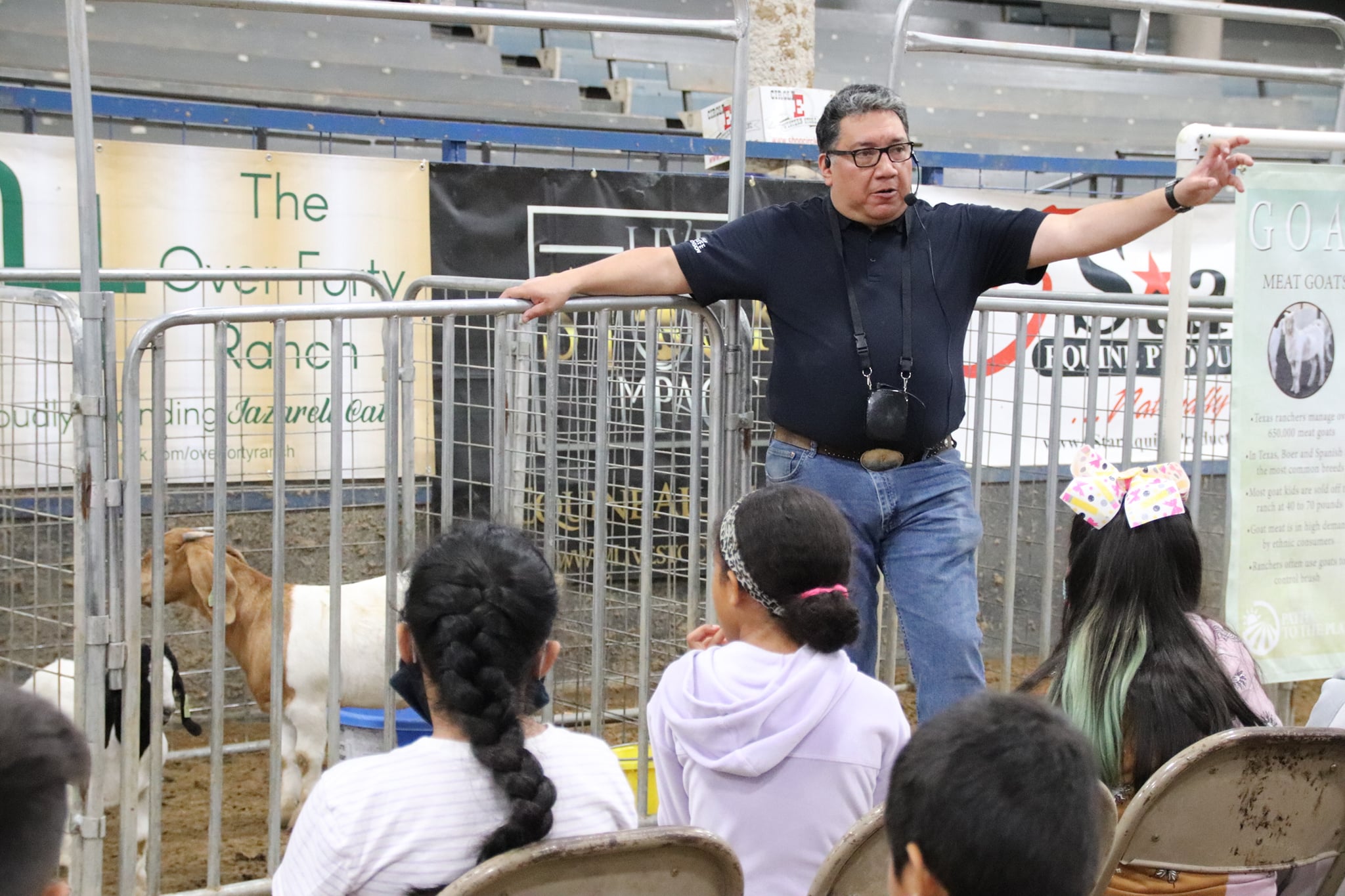Goats for small acreage by Mario Villarino


Livestock for the small acreage: Goats
Because of their relatively small size, goats are even better suited to small acreage operations than cattle. Goats eat more browse plants than other domestic livestock do. Therefore, they are the best species for managing or sculpting woody plant habitats. Unfortunately, plants such as juniper or mesquite are very low on a goat’s list of preferred plants, so do not count on goats to manage these “undesirable” plants.
Do not expect goat browsing to eliminate juniper more than 4 feet tall. Breeds for meat goat production include:
- Boer. This breed was originally developed in South Africa and imported in 1993. Animals have mostly white bodies with dark red heads and white blazes on their faces. Boer goats are docile and easy to handle. Both sexes are horned.
- Spanish. The breed characteristics of Spanish goats are not well defined. Their color ranges from black to white and their mature weight ranges from 60 to 130 pounds for does and from 90 to 250 pounds for bucks. As a breed, Spanish goats are hardy and adapt well to rough terrain. Of the breeds mentioned here, they are the least docile.
- Dairy. Dairy breeds such as Nubian, Saanen, Alpine and LaMancha can be raised for meat. However, because they were bred for milk production, some individuals have an udder conformation that is not conducive to pasture conditions and nursing kids. This makes dairy type goats less suitable for a meat goat operation. Dairy goats are docile. If not disbudded, many dairy goats will have horns.
- Pygmy. This is the smallest of the goat breeds. Most pygmy goats are less than 30 inches tall at the shoulder and weigh less than 80 pounds. Bred primarily as a novelty and for exhibition, their small size, docility and low nutrient requirements make these goats well suited to small acreages. They are marketed as pets or breeding animals, or for meat.
For more information on this or any other agricultural topic please contact the Hopkins County Extension Office at 903-885-3443 or email m-villarino@tamu.edu.
Contributed by Mario Villarino












